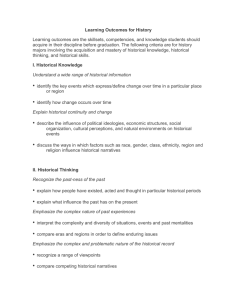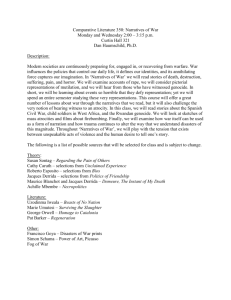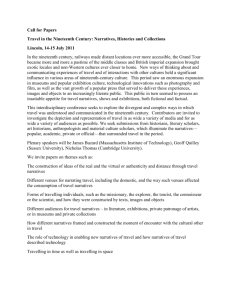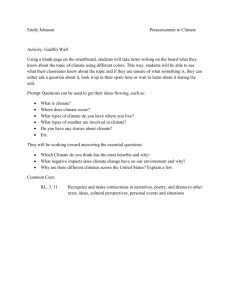The Power of a Spoken Word
advertisement
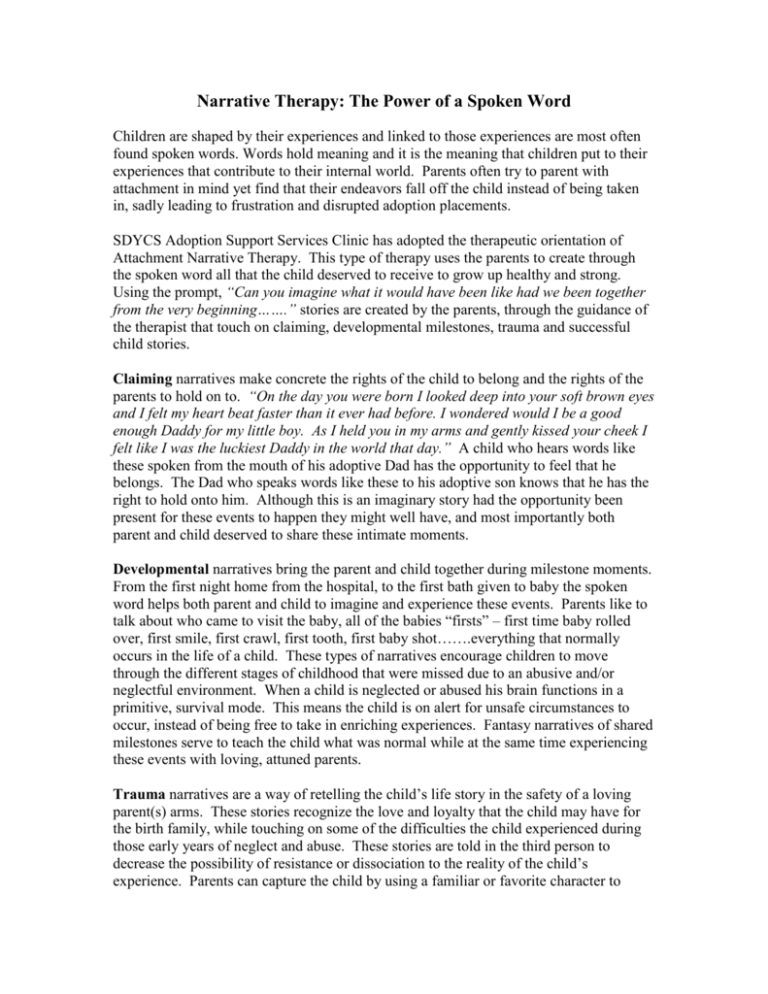
Narrative Therapy: The Power of a Spoken Word Children are shaped by their experiences and linked to those experiences are most often found spoken words. Words hold meaning and it is the meaning that children put to their experiences that contribute to their internal world. Parents often try to parent with attachment in mind yet find that their endeavors fall off the child instead of being taken in, sadly leading to frustration and disrupted adoption placements. SDYCS Adoption Support Services Clinic has adopted the therapeutic orientation of Attachment Narrative Therapy. This type of therapy uses the parents to create through the spoken word all that the child deserved to receive to grow up healthy and strong. Using the prompt, “Can you imagine what it would have been like had we been together from the very beginning…….” stories are created by the parents, through the guidance of the therapist that touch on claiming, developmental milestones, trauma and successful child stories. Claiming narratives make concrete the rights of the child to belong and the rights of the parents to hold on to. “On the day you were born I looked deep into your soft brown eyes and I felt my heart beat faster than it ever had before. I wondered would I be a good enough Daddy for my little boy. As I held you in my arms and gently kissed your cheek I felt like I was the luckiest Daddy in the world that day.” A child who hears words like these spoken from the mouth of his adoptive Dad has the opportunity to feel that he belongs. The Dad who speaks words like these to his adoptive son knows that he has the right to hold onto him. Although this is an imaginary story had the opportunity been present for these events to happen they might well have, and most importantly both parent and child deserved to share these intimate moments. Developmental narratives bring the parent and child together during milestone moments. From the first night home from the hospital, to the first bath given to baby the spoken word helps both parent and child to imagine and experience these events. Parents like to talk about who came to visit the baby, all of the babies “firsts” – first time baby rolled over, first smile, first crawl, first tooth, first baby shot…….everything that normally occurs in the life of a child. These types of narratives encourage children to move through the different stages of childhood that were missed due to an abusive and/or neglectful environment. When a child is neglected or abused his brain functions in a primitive, survival mode. This means the child is on alert for unsafe circumstances to occur, instead of being free to take in enriching experiences. Fantasy narratives of shared milestones serve to teach the child what was normal while at the same time experiencing these events with loving, attuned parents. Trauma narratives are a way of retelling the child’s life story in the safety of a loving parent(s) arms. These stories recognize the love and loyalty that the child may have for the birth family, while touching on some of the difficulties the child experienced during those early years of neglect and abuse. These stories are told in the third person to decrease the possibility of resistance or dissociation to the reality of the child’s experience. Parents can capture the child by using a familiar or favorite character to represent the protagonist in the story. Parents who create trauma narratives are often moved with compassion and deeper understanding of their child’s present behaviors in light of the purposes they served during the trauma period. Successful child narratives are also told in the third person and are about characters that overcome behavioral roadblocks, fears, or life’s difficulties who learn from their experiences. Brother Bear had a problem with some bullies at school and he was scared they were going to hurt him. He tried all kinds of things to stop the bullies but nothing seemed to work. “What was a bear to do,” he thought. Almost before he finished his thought he answered himself, “Talk to Wise Owl” “That is what I will do…That is what I will do,” he told himself. So Brother Bear hurried off to find his friend the owl……… Successful child narratives can have a moral, but don’t have to. They can teach character qualities to children or help children imagine overcoming specific fears. Regardless of the content, the focus of the stories is on a child who succeeds over some difficult circumstance. Attachment Narrative Therapy is non-intrusive, loving, supportive ways of helping families find their way to more satisfying relationships. As a staff we have been encouraged by the outcomes of this type of therapy and are committed to furthering our work with adoptive families. Donna Chevalier, MA, MFTI SDYCS Psychotherapist


